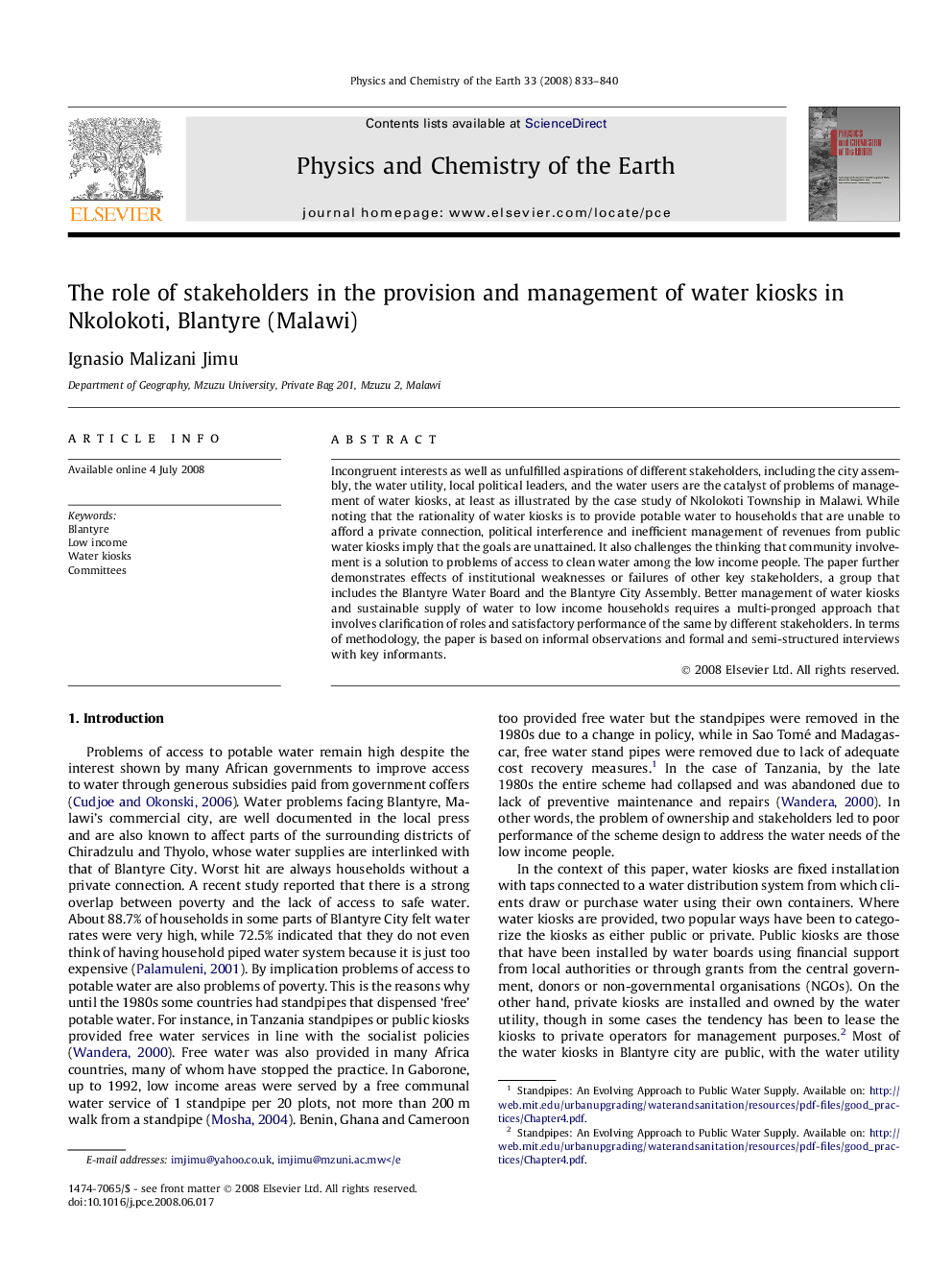| Article ID | Journal | Published Year | Pages | File Type |
|---|---|---|---|---|
| 4721742 | Physics and Chemistry of the Earth, Parts A/B/C | 2008 | 8 Pages |
Incongruent interests as well as unfulfilled aspirations of different stakeholders, including the city assembly, the water utility, local political leaders, and the water users are the catalyst of problems of management of water kiosks, at least as illustrated by the case study of Nkolokoti Township in Malawi. While noting that the rationality of water kiosks is to provide potable water to households that are unable to afford a private connection, political interference and inefficient management of revenues from public water kiosks imply that the goals are unattained. It also challenges the thinking that community involvement is a solution to problems of access to clean water among the low income people. The paper further demonstrates effects of institutional weaknesses or failures of other key stakeholders, a group that includes the Blantyre Water Board and the Blantyre City Assembly. Better management of water kiosks and sustainable supply of water to low income households requires a multi-pronged approach that involves clarification of roles and satisfactory performance of the same by different stakeholders. In terms of methodology, the paper is based on informal observations and formal and semi-structured interviews with key informants.
